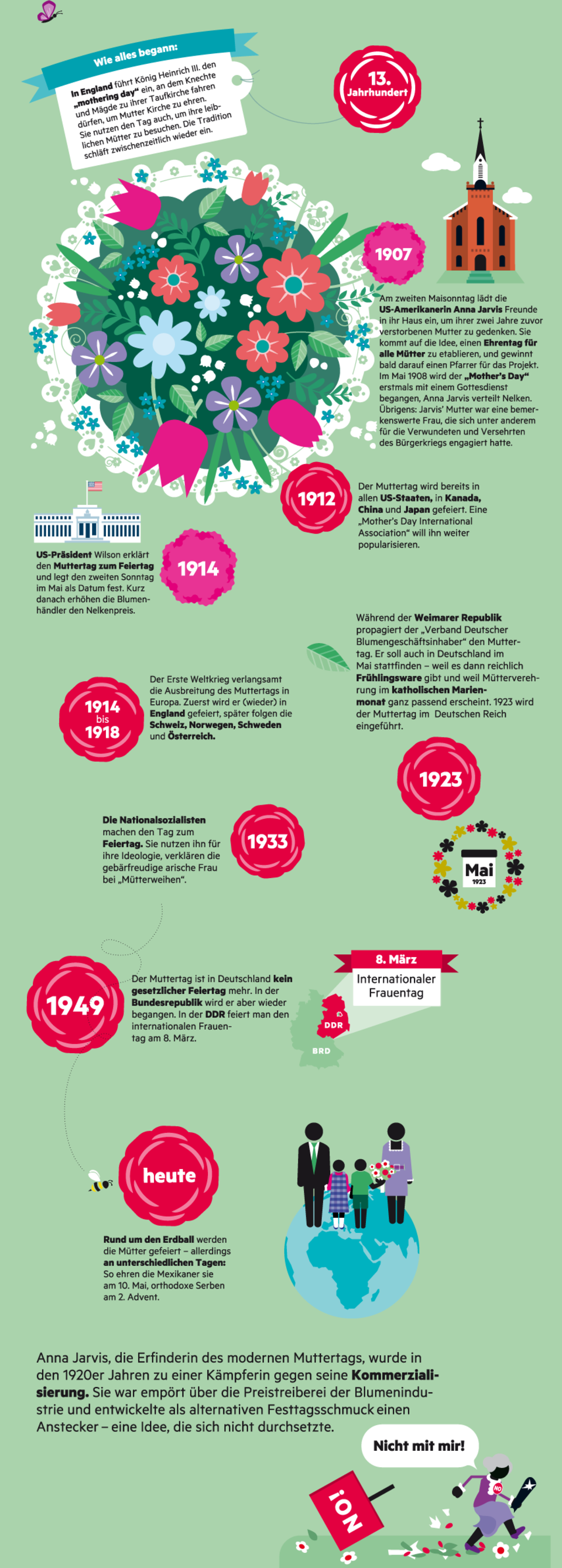Mother’s Day 2024
Where does Mother’s Day actually come from? Did the Nazis really invent it?
Mother’s Day is also an established institution in Germany, but it does not originate here
© Imago Images
German florists promoted Mother’s Day – but it was not a Nazi invention. The roots of Mother’s Day go back much further.
Contrary to popular belief, Mother’s Day was not an invention of the Nazis. Although they used it (like many other things) for their ideological propaganda by honoring the Aryan woman who was happy to give birth in May, the roots of the day go back to medieval England. King Henry III introduced “Mothering Day” there in the 13th century.
When is Mother’s Day?
After the tradition had fallen dormant for centuries, it was revived in the USA in the early 20th century on the initiative of the American Anna Jarvis. From there the day made it back across the Atlantic to Europe and eventually became a permanent institution in Germany. In this country, Mother’s Day always falls on the second Sunday in May. By the way, it is not a holiday – to clear up a second rumor.
You can find a detailed history in the infographic below, a brief summary here:
- 1907: On the second Sunday of May, the American Anna Jarvis invites friends to her house to commemorate her mother, who died two years earlier. She comes up with the idea of establishing a day of honor for all mothers.
- 1908 “Mother’s Day” is celebrated with a church service for the first time.
- 1914: US President Wilson declares Mother’s Day a public holiday and sets the date as the second Sunday in May.
- 1922: During the Weimar Republic, the “Association of German Flower Shop Owners” promoted Mother’s Day.
- 1923: Mother’s Day is introduced in the German Reich.
- 1933: The National Socialists made the day a public holiday. They use it for their ideology.
- 1949: Mother’s Day is no longer a public holiday in Germany. But it is being committed again in the Federal Republic. In the GDR, International Women’s Day is celebrated on March 8th.
The star-Infographic from the “See and Understand” series explains where Mother’s Day comes from and how it developed.
© stern infographic
Fun facts for Mother’s Day
During Mother’s Day week, German florists turn over around twice as much as in a normal week: 120 million euros.
For the majority of Germans, anyone who still has a mother gives her something to celebrate her special day. Mostly they are flowers.
Pregnancy audio books
Happy birth and pregnancy: Seven guides for expectant mothers and fathers
In the gallery: Pregnancy and birth are a very special time for expectant parents. The tension is great and uncertainties are not uncommon. That’s exactly why a lot of books are read during this time. We have collected seven audio books that provide expectant parents with advice and support.


